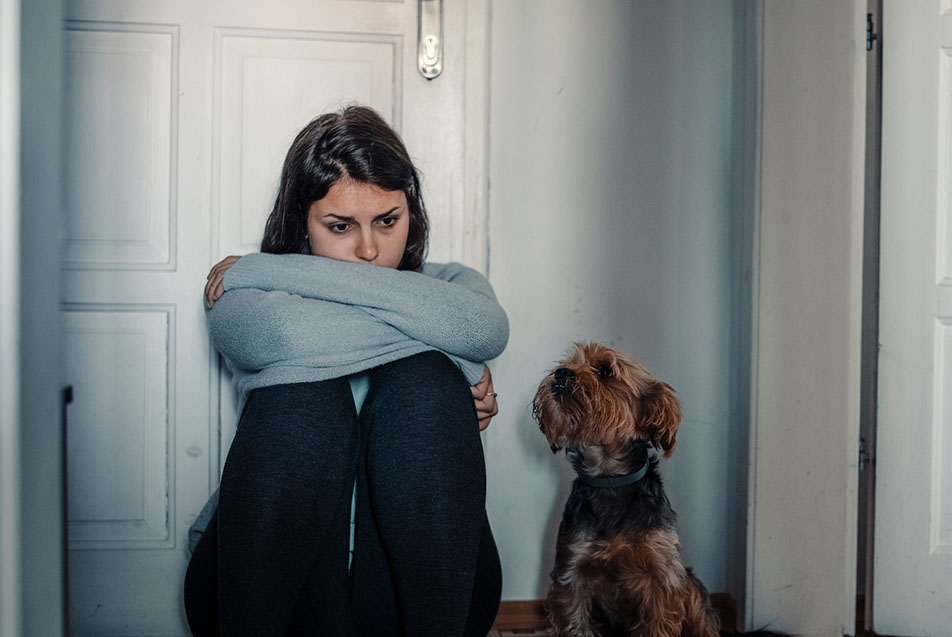
This post was written based on a media interview with Courtney L. Washington, PsyD, CSAYC, HSPP, clinical training director, Park Center, Parkview Behavioral Health Institute.
I want to start by saying it’s time to normalize mental health struggles and thoughts of suicide. These are things that pop up for us sometimes. It’s OK to share those things and talk about them. People fear that broaching the topic with someone they’re concerned about will give them an idea about suicide. But the research doesn’t support that. You can and should have open and frank conversations about mental health, as honest and as nonjudgmental as possible.
Warning signs
A mental health struggle can look different in different people. Some common things we see are:
- Isolating from friends or loved ones.
- Not enjoying things they/you used to enjoy doing.
- Not feeling connected to others.
- A change in normal behavior or routines. Maybe you were a good sleeper and then suddenly you have trouble sleeping. It could be a signal that something is happening with your mental health and that you need to do something different.
- A sudden interest in acquiring a firearm.
- Giving away possessions.
The human connection
People have to recognize that they are not alone, and that we all struggle at different times in our lives. That struggle is not a sign of weakness or that something is inherently wrong with you. Being a human being is hard, and it has been extra hard the last few years with the pandemic and events of the world. We’ve been more stressed and isolated, which makes it hard to manage things.
The opposite of addiction is not recovery or sobriety – it’s connection to others. So, when we feel judged or stigmatized, we often disconnect ourselves. And it’s our relationship and our connectiveness that makes us uniquely human and makes this whole experience worth it.
If you notice someone is struggling, it’s best to check in on them. We don’t want to embarrass them, but we underestimate how much it means to just ask how someone is really doing and if there’s anything we can do.
If your concerns escalate, consider looping in a loved one or family member, particularly if it’s a child or adolescent. You want to find someone that you or your loved one feels safe with. If they don’t have a close loved one, you can turn to the crisis resources listed below.
Risk factors and trends
On both a national and regional level, mental health needs are increasing. It’s not clear yet whether this shift is due to people feeling worse or a reduction in the stigma around mental health, making people more comfortable reaching out. Either way, we’re definitely seeing a greater need for services.
Around suicide, we find that people are at a higher risk for completed suicide. Generally speaking, men are more vulnerable. Women are more likely to attempt suicide, but men often select a more violent means.
A big risk factor is access to violent means, meaning access to firearms. Not just that they are available, but also a lack of education about them and a lack of procedures to keep firearms away from children.
Another population at a greater risk is our LGBTQ+ adults and youth. These individuals are four times more likely to experience suicide ideation and attempts due to a lack of acceptance. The risk is even greater for those who identify as another minority status.
Where to go for help
There are a lot of resources throughout our community. Parkview Behavioral Health Institute is always accepting referrals. We have a main line (260-373-7500) where you can connect with someone 24/7 who can help determine the appropriate services for you. Psychology Today is a great resource to find providers in your area. If you have a specific pay source, insurance or health care company, you can reach out to them and ask for providers covered by your policy.
There are a number of helpful crisis resources for individuals and those concerned about an individual. Here are just some of those hotline numbers:
PBHI Helpline – 260-471-9440 or 800-284-8439
National Crisis Hotline national line (texting available) – 800-273-TALK
National Mental Health Emergency line – 988
Trevor Project, for LGBTQ+ youth – 866-488-7386
If you are ever concerned for an individual and think they might have done something to hurt themselves or others, you can always call the local desk sergeant and request a well check. They will send an officer out to check on the individual.



